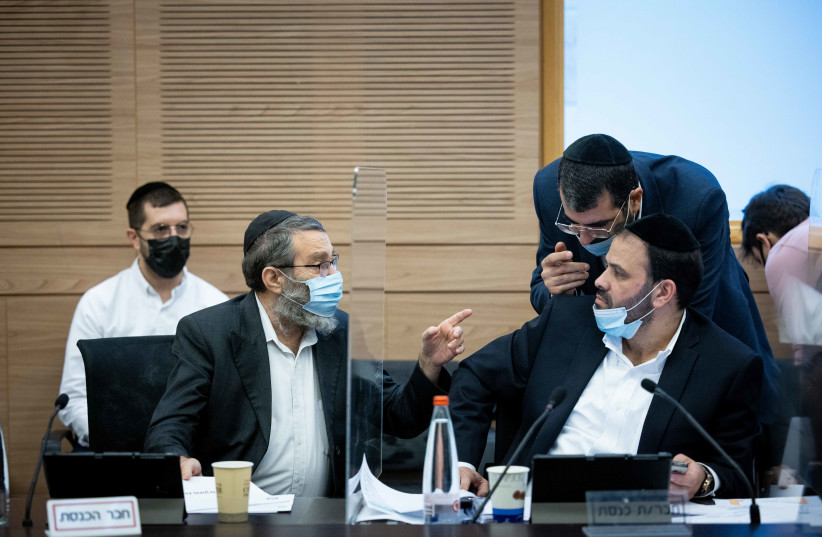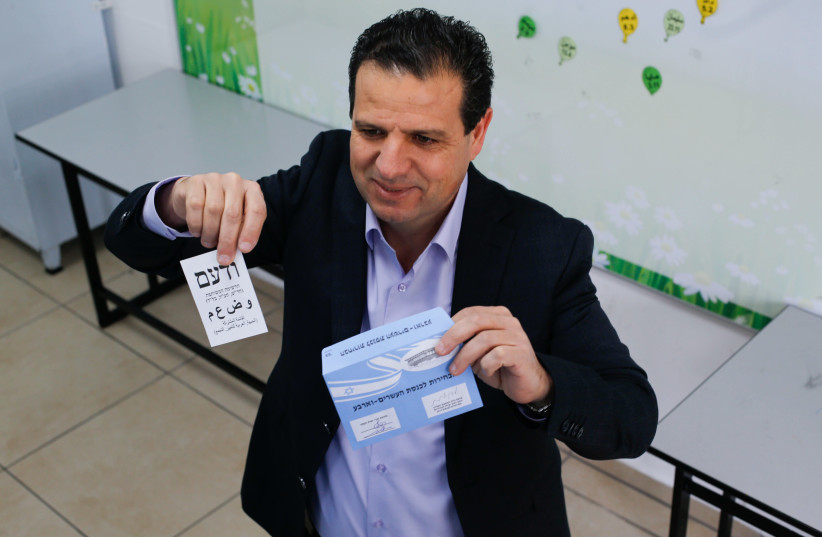The number of votes a political party must receive in to hold seats in the Israeli Knesset (the electoral threshold), currently stands at 3.25% of all votes. Should that change ahead of the upcoming election that set to take place later this year?
A new poll by the Citizen's Empowerment Center in Israel examined public support for lowering the electoral threshold prior to the discussion on the matter in the Knesset's Ministerial Committee on Legislation.
According to the poll, 37% of the general public are in favor of raising the threshold, making it harder for fringe political parties to win seats at the next Knesset. contrary to the offer that will be brought to the committee, less than half as many people are in favor of lowering the threshold (15%).
23% stated that they have no opinion on the matter while 25% are fine with leaving the current state of things as is.
However, Israel is a diverse nation with a number of political parties dedicated to the political needs of their own sector. How did each sector vote in the poll and how would lowering or raising the electoral threshold affect the parties that represent them?

The ultra-Orthodox (haredi) sector
Israel's community-oriented politics is most evident in Israel's religious voter bloc, with Shas acting as the go-to party for ultra-Orthodox (haredi) Jews of Sephardic descent.
United Torah Judaism (UTJ) is the faction representing Ashkenazi haredim, but the faction in itself is composed of an alliance formed by two separate parties: Agudat Yisrael, a predominantly hasidic party, and Degel HaTorah, which represents the non-hasidic Lithuanian haredi sect.
In the haredi community, the data is similar to that of the general Jewish Israeli public. There is more support for the increase of the threshold (24%) and only 14% support lowering it, while 62% either support the current situation or have no opinion on the matter.
MK Moshe Gafni's UTJ party has won seven seats in the last three elections to the Knesset in recent times and, if the union remains intact for the upcoming election, is expected to win a similar amount of seats this term, safely above the electoral threshold.
Shas also has no real cause for alarm, with the party winning nine Knesset seats in the last three elections and with a relatively loyal voter base. However, the political union between Religious Zionism faction head MK Bezalel Smotrich and Otzma Yehudit head MK Itamar Ben-Gvir, which is soaring in recent polls, had already attempted to target and persuade Shas voters to switch their votes.
The Arab sector
In the Arab sector, on the other hand, the trend is an almost polar opposite to that of the general public - the majority of the responders, 31% support lowering the threshold, while 22% of Arab-Israeli respondents want to leave the current situation as is and only 16% support raising the threshold.
The Arab support for lowering the threshold should come as no surprise, as the two Arab parties in the Knesset, the Joint List and Ra'am, are polling much nearer to the electoral threshold.
Ra'am, led by Mansour Abbas, just barely won four Knesset seats in the 2021 elections. The four seats, however, proved to be crucial in forming the Bennett-Lapid government. Raising the electoral threshold would see Ra'am's odds of passing the threshold once again significantly lowered.

The Joint List, on the other hand, currently polls at six, the same number of seats won by the MK Aymen Odeh-led faction in 2021.
While it is expected to pass the threshold, the lower turnout of Arab voters has seen their election results dip from 15 seats in the 2020 election, which made them the third-largest party, to less than half that just a year later. Voter turnout is, in fact, a bigger threat to Arab parties than the electoral threshold being raised or lowered.
It should be noted that the percentage of those who "have no opinion on the matter" (31%) is equal to the percentage of supporters.
